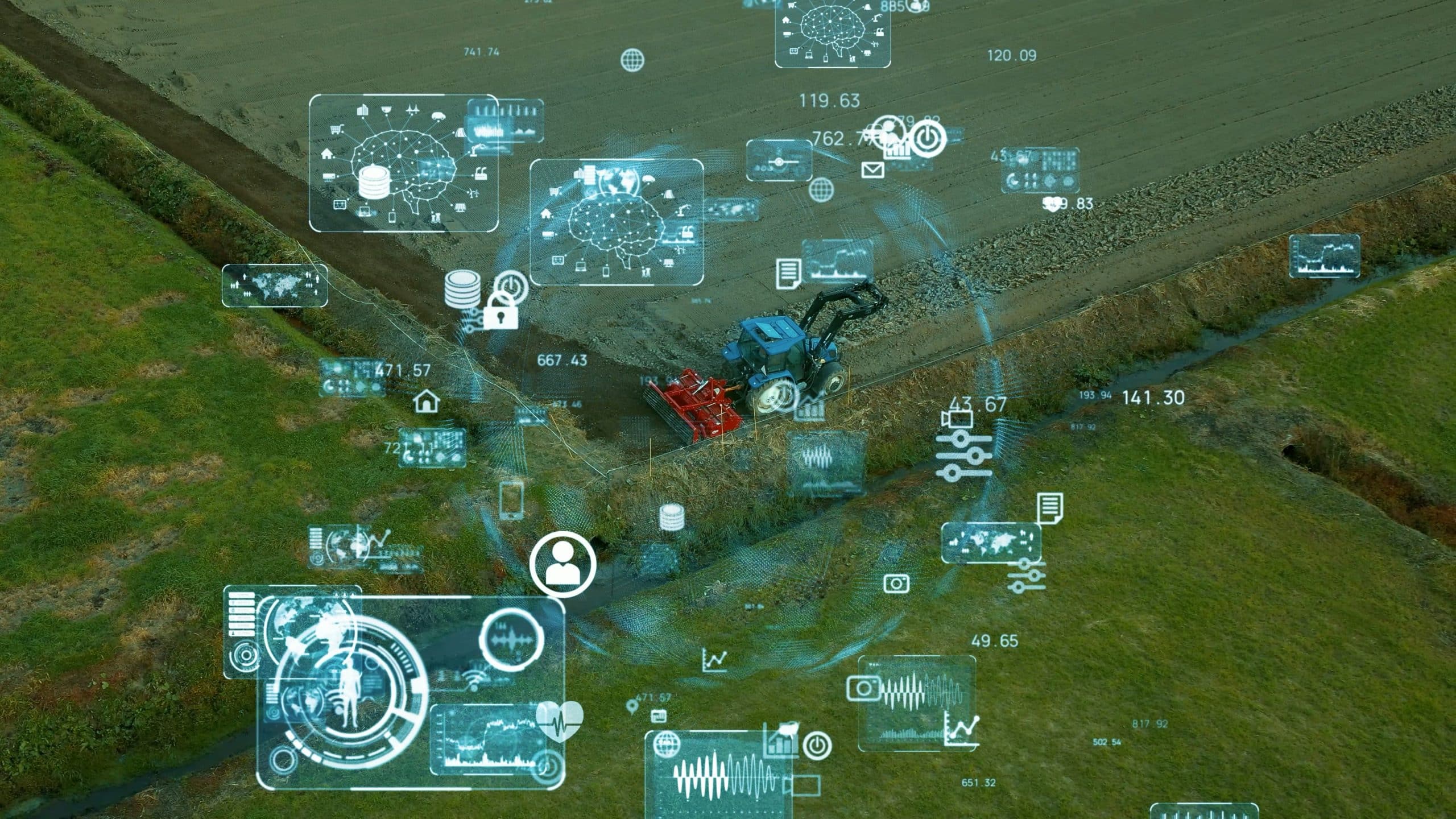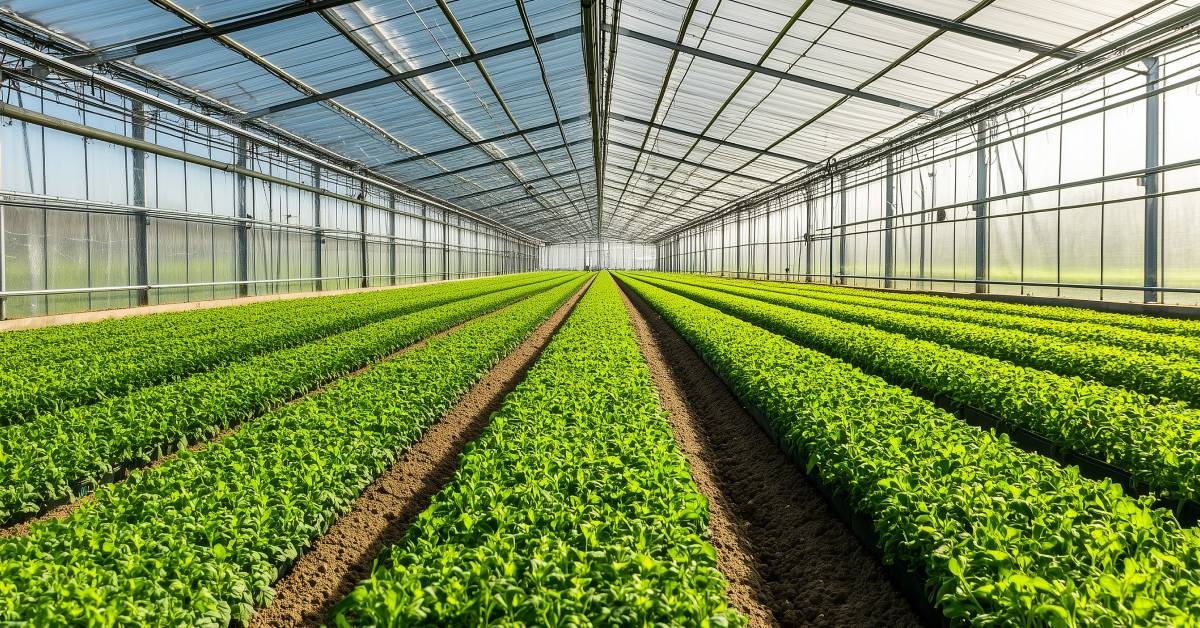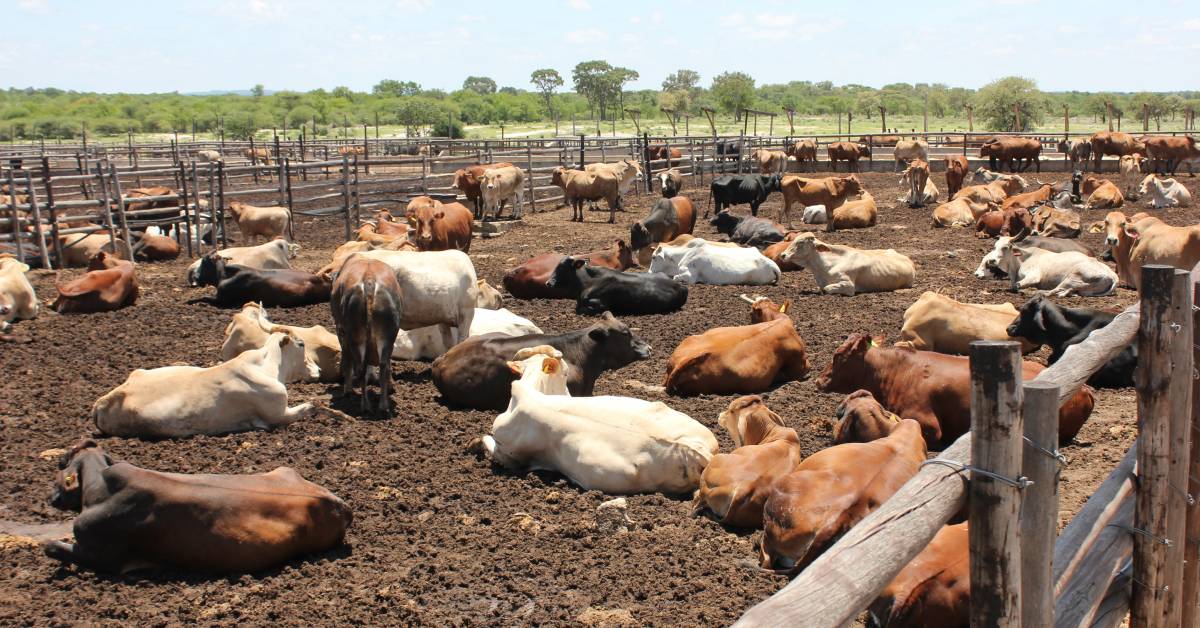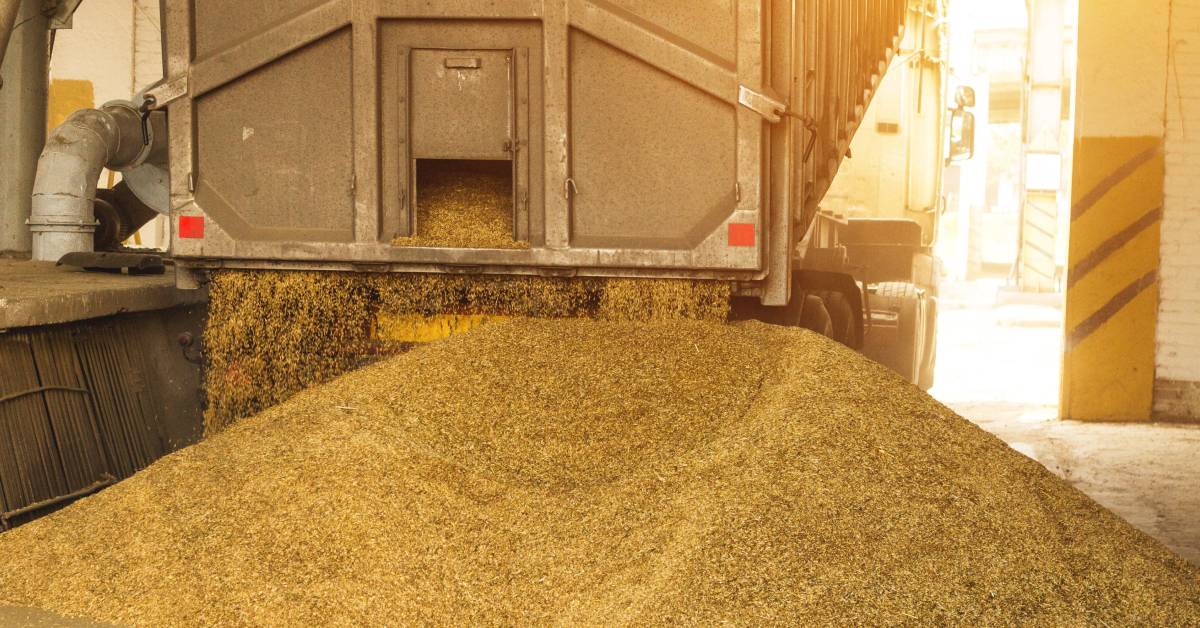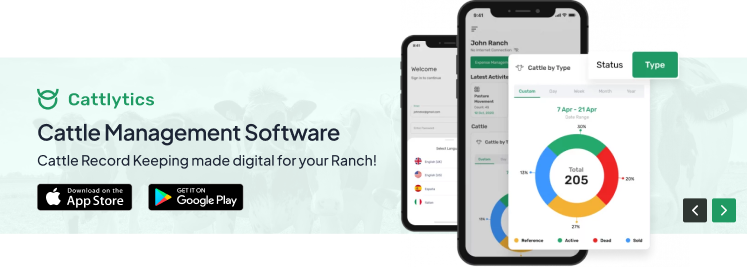Imagine a world where your consumer can scan a QR code on an apple and see its journey. From the orchard where it grew to the truck that delivered it to the grocery store, they get access to all the data. No more questions about the use of pesticides or fertilizers. No more wondering about fair trade practices. The consumer will know as much about the process of growing that apple as you! This level of transparency and traceability is possible now because of blockchain in agriculture.
Did you know that only 44% of global consumers trust the food industry to act ethically? The need for transparency and traceability in the agriculture industry has never been greater! As the world explores the use of blockchain technology in agriculture, let us take a quick peek at it, too. In this blog, we’ll cover how blockchain has increased traceability and transparency in agricultural practices and how it has improved food safety for consumers and producers.
Blockchain’s Role in Agricultural Traceability
The use of blockchain technology to address traceability issues has dramatically increased over the years. In this context, the term “traceability” refers to the capability of following the path of agricultural products from their place of origin on the farm to their final destination on consumers’ plates–every stage of the process is involved, from planting and harvesting to processing, packaging, and distribution.
Significance of Traceability
Traceability holds immense significance in the agricultural sector, and its importance cannot be overstated for several compelling reasons. Some of them are:
Food Safety:
The idea of having safe food is not new. However, over the decades, the gap between producers’ and consumers’ knowledge about food has increased. This is one reason why the need to ensure the safety of the food has increased. With Blockchain, consumers can have a tamper-proof ledger of each stage in the supply chain. This enables quick identification and correction of any issue related to their food.
Consumer Confidence:
Today’s consumers are becoming increasingly aware of the food they consume. They are interested in its origin, cultivation methods, and compliance with moral and environmental standards. Blockchain traceability gives consumers the information they want and increases consumer confidence in the food supply chain.
For those looking to diversify their investments, opportunities like those to buy bitcoin with debit card can represent a modern approach to finance, blending traditional practices with new technological integrations.
Efficiency and Waste Reduction:
Supply networks are more effective when traceability is improved. By utilizing the data gathered through blockchain, farmers can more effectively manage their resources, cut down on waste, and increase agricultural yields.
Ethical Sourcing:
Fair labor procedures and sustainable farming techniques are two ethical issues in agriculture that are gaining ground. Blockchain makes it possible to validate these procedures, assuring customers that the things they buy are consistent with their beliefs.
Market Access:
A robust traceability system can open doors to new markets for producers. Many retailers and distributors now require traceability data for their sourcing criteria.
Understanding Farm-to-Fork Traceability
“Farm-to-fork traceability” allows the tracking and tracing of agricultural products from their place of origin to the consumer’s plate. For this to work, every stage of the blockchain in the agriculture supply chain management must be documented and monitored. This idea is important to agriculture because it guarantees responsibility and openness throughout a food product’s lifecycle.
Relevance to the Agriculture Industry
Farm-to-fork traceability is highly relevant to the agriculture industry for several reasons. One of them is food safety. By quickly identifying and containing tainted or dangerous items, traceability shields customers from possible health concerns. Another reason is the traceability factor, which allows farmers and other producers to uphold stringent quality control standards.
They may track and record variables like weather patterns, soil quality, and pest control, assuring the development of superior, secure, and reliable agricultural products. Consumer trust and loyalty are the factors that influence traceability. Due to the increased need for traceability, governments and regulatory bodies impose stricter regulations on food safety and traceability.
Examples of Increased Farm-to-Fork Traceability
In 2023, blockchain farm-to-fork traceability helped pinpoint the source of salmonella contamination in eggs within days. It helped avoid a wider outbreak and helped consumers stay safe. Targeted recalls for safety issues also became possible with blockchain technology in the agriculture market. A recent report suggests blockchain-driven recalls are bound to reduce wasted food by up to 80%.
Blockchain proves to be beneficial not only for consumers but also for producers. Blockchain-verified provenance and ethical sourcing can help producers charge higher prices for their products. With consumers increasingly valuing transparency and responsible production, they are more willing to pay extra. For example, a small coffee farm in Costa Rica saw a 20% price increase after implementing blockchain traceability for their ethically sourced beans.
Challenges in Traditional Traceability Methods
Traditional traceability methods in agriculture have several limitations that make them less effective in today’s complex food supply chains. Some of those challenges include:
Paper-Based Records:
Many farms and food producers still use paper-based record-keeping methods, but they are error-, data-, and forgery-prone. Additionally, it is time-consuming and challenging to transfer throughout the supply chain using these methods.
Limited Transparency:
Traditional procedures frequently lack transparency. The full supply chain may not be visible to stakeholders, making it challenging to identify the root of problems or maintain proper product tracking.
Data Fragmentation:
In conventional traceability systems, data is typically siloed and fragmented across different players in the supply chain. This lack of integration can hinder the efficient exchange of information.
Compliance Obstacles:
Using conventional traceability techniques to comply with changing regulatory requirements might be difficult. Because record-keeping is manual, adjusting to evolving requirements and delivering reports on time is challenging.
Limited Consumer Engagement:
Traditional traceability solutions frequently fall short of properly involving customers. Customers are deprived of the chance to make educated decisions since they are in the dark about the sources and routes of their food.
Blockchain Technology in Farming
At its heart, blockchain is a distributed and unchangeable digital ledger that tracks transactions across numerous computers or nodes. Here is a description of how blockchain functions and some possible uses in agriculture.
Blockchain relies on a decentralized network. No central authority or mediator controls the data. This practice removes the need for third parties in the supply chain. It allows farmers to communicate with buyers, processors, and consumers directly.
Once information is stored on the blockchain, it is almost impossible to change or remove it. This function ensures the accuracy of data about farming methods, product origins, and quality standards. Every transaction on the blockchain is accessible to everyone using it. Agriculture benefits greatly from this transparency since stakeholders can confirm the integrity of the data and guarantee that it complies with moral and environmental norms.
Moreover, blockchain protects data using strong encryption techniques, making it extremely resilient to fraud and online attacks. Smart contracts are also used to automate processes in agriculture. These processes include payments, quality inspections, and compliance checks. This way, payments are only released when the product meets a certain standard. For those interested in developing tailored blockchain solutions, exploring blockchain app development services can be a significant step toward integrating advanced security and transparency features into agricultural operations.
How Blockchain Enhances Traceability
Blockchain is a decentralized, immutable ledger that records transactions and data, ensuring that information about a product’s journey from farm to consumer remains unchanged and verifiable. Blockchain network participants, including farmers, processors, distributors, and retailers, use unique digital signatures to authenticate transactions, creating a traceable chain of custody for each product during transformations.
Thanks to blockchain technology, real-time data sharing is possible across the supply chain. It allows all authorized parties to access and contribute, guaranteeing that everyone has access to the most recent data regarding the status and placement of products. This transparency promotes accountability and trust between stakeholders.
Additionally, blockchain facilitates swift resolution of food safety compliance concerns, food contamination, or product recalls by providing all relevant data, enabling stakeholders to identify sources, isolate affected products, and inform consumers.
Benefits of Implementing Blockchain in Agriculture
Blockchain technology offers a range of benefits that have the potential to revolutionize various aspects of agriculture. Here are some of the key advantages of using blockchain in the agriculture market:
Improved Food Safety
Blockchain technology significantly enhances food safety in the agricultural industry through its traceability features. Here’s how:
- Blockchain aids in the swift identification of foodborne illness sources, reducing potential health hazards and financial impact in the industry by tracking product paths.
- Blockchain integration with IoT sensors can monitor environmental conditions in agricultural product transportation and storage.
- Its immutability ensures the integrity of food safety information, prevents tampering, and ensures accurate and reliable product safety statements.
Supply Chain Transparency
Blockchain helps create transparency within agricultural supply chains by providing real-time visibility and accountability:
- Blockchain provides a shared, live ledger of all product movements, conditions, and certifications.
- Stakeholders like distributors and retailers anticipate needs, requirements for inventory management, and optimize shipping routes based on real-time data.
- Smart contracts handle payments, delivery, or instant insurance claim tasks autonomously, eliminating paperwork delays and human errors.
- AI algorithms mine the vast trove of information on the blockchain to identify patterns, predict bottlenecks, and recommend solutions for smoother logistics and communication.
Reduced Fraud and Counterfeiting
Blockchain technology is a powerful tool for reducing the risks of fraud and counterfeit products in agriculture. It ensures product origin and validity, eliminating tampering risks.
- Counterfeit goods can be detected immediately due to the unchanging information stored on the blockchain.
- Blockchain technology provides secure digital identities and cryptographic signatures for supply chain authentication, safeguarding consumer confidence and promoting the standing of legitimate agricultural producers.
- Smart contracts automate and enforce supply chain agreements, reducing the risk of mislabeled products.
Real-World Applications of Blockchain in Agriculture
Certainly, here are some real-life examples of farms and agriculture businesses that have adopted blockchain technology to enhance traceability in their operations:
IBM and Walmart’s Global Collaboration
Walmart, one of the biggest merchants in the world, implemented a blockchain-based system for food supply chain traceability in collaboration with IBM. The project’s goal was to make it easier for Walmart to track the origin and route of leafy greens, especially romaine lettuce, in seconds instead of days. This approach has increased food safety by immediately identifying and resolving contamination issues.
Nestlé’s Dairy Supply Chain (Middle East)
The blockchain has been adopted by Nestlé, a multinational food and beverage corporation, to improve supply chain transparency and traceability for dairy products. The system was put in place to track the route taken by milk from New Zealand farmers to Nestlé plants in the Middle East. The product’s packaging includes a QR code that customers can use to access comprehensive details on the milk’s provenance, quality, and sustainability practices.
AgriDigital (Australia)
AgriDigital is an Australian AgTech company that employs blockchain to manage grain supply chains. Their platform allows farmers to record the movement and ownership of grains in real time. Blockchain ensures that all participants in the supply chain, including farmers, grain buyers, and distributors, have access to accurate and immutable data. This reduces disputes and delays in payments while improving the overall efficiency of the grain supply chain.
These case studies illustrate how farms and agriculture businesses worldwide are actively adopting blockchain technology to enhance traceability, transparency, and efficiency in their operations.
Challenges and Considerations
Addressing Adoption Challenges
Although there are many benefits of blockchain in the agriculture and food supply chain market, the adoption of blockchain is facing several difficulties:
Complexity of Integration:
Integrating blockchain into present agricultural systems can be challenging and may require substantial modifications to existing procedures and infrastructure. Farmers and agribusinesses may need time and money to adjust to this new technology.
Cost:
The use of blockchain technology entails ongoing maintenance, hardware infrastructure, and software development expenditures. These expenses can be prohibitive for smaller farms or businesses with constrained resources.
Education and Training:
Agricultural stakeholders and farmers may lack the skills and knowledge required to use blockchain efficiently. Educational and training activities are crucial to closing this knowledge gap.
Interoperability:
Because the agriculture sector comprises so many diverse stakeholders, it is essential to make sure that various blockchain platforms and systems can connect. Efforts toward standardization are required to promote interoperability.
Resistance to Change:
Any industry faces this problem frequently. If farmers and agricultural businesses are happy with their current procedures, they could be reluctant to adopt new technologies.
Infrastructure and Connectivity:
Access to dependable internet and technological infrastructure may be restricted in many rural locations where farming is common. Inadequate connectivity may impede the adoption of blockchain technology.
Addressing Data Security Challenges
Blockchain technology inherently addresses data security concerns in agriculture through the following mechanisms:
Encryption:
Blockchain encrypts data using sophisticated encryption methods. The blockchain encrypts all transactions and data, preventing unauthorized users from accessing or changing the data without the proper cryptographic keys.
Permissioned Access:
Blockchain networks can be granted permission, which restricts access to certain data to only those who have been given permission. As a result, confidential data is protected from being accessed by unauthorized individuals.
Private Data Channels:
Some blockchain platforms allow for the creation of private data channels, where sensitive information can be shared among specific participants while remaining hidden from the broader network.
Initiatives for Wider Adoption:
Despite these challenges, several initiatives are actively addressing them and paving the way for wider adoption:
Simplifying Technology:
Platforms like IBM Food Trust and Microsoft Azure Blockchain provide user-friendly interfaces and tools specifically designed for agricultural use. Projects like the World Bank’s “Trade and Connectivity Facilitation Platform” utilize blockchain to simplify trade processes for farmers and small businesses.
Bridging the Connectivity Gap:
Initiatives like Helium and Hivemapper are exploring the use of decentralized wireless networks for improved connectivity in remote areas.
Navigating Regulatory Landscapes:
The World Food Programme, along with several governments, is collaborating to create transparent and harmonized blockchain regulations for the food sector.
Implementing Blockchain in Agriculture
Here are practical steps for farmers and businesses to follow when integrating blockchain into their operations:
- Identify specific challenges and goals where blockchain can bring value, such as food safety or supply chain transparency.
- Ensure that your team is knowledgeable on blockchain fundamentals and its possible advantages.
- Conduct research and pick an appropriate blockchain platform, taking scalability, privacy, and integration capabilities into account.
- Work closely with supply chain partners to ensure their willingness to participate.
- Lay down data structures, design the blockchain system, and produce smart contracts.
- Implement data collection processes, whether through IoT devices, apps, or manual entry.
- Integrate the blockchain system with existing data management tools and supply chain systems.
- Perform a modest-scale pilot test, get feedback, and make the required alterations.
- Introduce the blockchain technology throughout the whole supply chain while offering any necessary training.
- Regularly maintain and update the system, monitoring its performance.
Choosing the Right Blockchain Solution
When selecting a solution, it is important to consider your needs, including scalability and data privacy. Take the time to explore the various possibilities, considering factors such as pricing and technical specifications. Additionally, think about customization options, compliance requirements, and interoperability with existing systems.
It is also crucial to evaluate the security and dependability of the solution and the level of vendor support available. Finally, don’t forget to analyze the ecosystem and blockchain community that surrounds the chosen solution to ensure a well-rounded decision-making process.
Measuring Success and Key Metrics
Key Performance Indicators (KPIs) for Traceability
Key performance indicators (KPIs) for measuring the success of blockchain-based traceability are listed below:
Traceability Rate:
This KPI calculates the proportion of batches or items that can be traced back to their original location utilizing blockchain technology. A higher traceability rate indicates better adoption and data accuracy.
Real-time Visibility:
A key KPI is the capacity to follow products in real time. It gauges how quickly stakeholders may get information regarding product movements and how frequently data is updated.
Accuracy of Data:
Assess the accuracy of data recorded on the blockchain, including product details, origin, and handling. Data inaccuracies can undermine trust in the system.
Consumer Engagement:
Assess consumer engagement with blockchain-based traceability. Monitor how many consumers use traceability tools to access product information and make informed choices.
Fraud Prevention:
Evaluate the effectiveness of the blockchain in reducing supply chain fraud and the entry of counterfeit goods. Fraud incidents falling off are a good sign.
Continuous Improvement with Blockchain
Continuous improvement is essential for businesses looking to fully leverage blockchain-based traceability. Here’s how they can use metrics for ongoing enhancement:
Data Analysis:
Conduct regular data analyses to spot supply chain bottlenecks, trends, and opportunities for improvement.
Feedback Loops:
Create channels for customers and partners in the supply chain to provide feedback, gain understanding, and make suggestions for improvement.
Benchmarking:
To determine where you could be slipping behind, compare your traceability performance to industry benchmarks and best practices.
Technology Improvements:
Stay up to date on blockchain technology developments and improvements that may improve security and traceability.
Sustainability Initiatives:
To lessen the environmental impact of your supply chain, use blockchain data to assist sustainability initiatives.
Future Trends and Developments of Blockchain in Agriculture
Here are some upcoming trends and developments in this field:
Hyper-Transparency Revolution
With tamper-proof records and real-time tracking, fraudulent practices will be easily exposed, protecting consumers from unsafe or mislabeled products. Armed with knowledge about the food they eat, consumers will wield newfound power to choose products aligned with their values, promoting better farming practices and fair treatment of workers.
Regenerative Agriculture Empowered
Blockchain-based microfinancing and carbon credit schemes can incentivize farmers to adopt regenerative practices like cover cropping and agroforestry, improving soil health and resilience.
Supply Chain Financing
For farmers and small agricultural businesses, blockchain will make supply chains more efficient and accessible. It will open up possibilities for safe lending based on open supply chain information.
IBM Food Trust
It tracks food journeys across major supply chains, such as Walmart and Nestlé, demonstrating the scalability and impact of blockchain in food traceability.
Regen Network
A carbon credit marketplace built on blockchain empowers farmers to earn rewards for implementing regenerative practices.
Conclusion
Blockchain technology is improving traceability in agriculture by offering a safe, open, and irreversible ledger. Its contribution to improving food safety, transparency, and supply chain effectiveness cannot be emphasized.
The capacity to make informed, sustainable decisions, real-time monitoring, decreased fraud, and increased consumer trust are among the major takeaways. As the agriculture industry embraces blockchain technology, it will be well-positioned for a future with supply chains that are safer, more effective, and ecologically sensitive, guaranteeing that the food we eat is not just traceable but also of the highest quality and integrity.
Stay Rooted, Grow Informed:
Frequently Asked Questions (FAQs)
Q: What Is Blockchain’s Role in Agriculture?
Blockchain enhances traceability, food safety, and supply chain transparency. It also reduces fraud and provides consumers with detailed information about agricultural products through a secure, transparent ledger.
Q: How Does Blockchain Ensure Unbreakable Traceability?
Blockchain ensures unbreakable traceability by recording transactions in a decentralized, immutable ledger, preventing data alteration or deletion, and requiring consensus among multiple participants in the supply chain.
Q: Are There Any Risks Associated with Blockchain Adoption in Agriculture?
While blockchain offers numerous benefits, it faces risks in agriculture, such as implementation costs, privacy concerns, resistance to change, and reliable connectivity in rural areas while ensuring regulatory compliance and interoperability issues.
Q: What Are Some Notable Examples of Blockchain Adoption in Farming?
Walmart, Nestlé, Te-Food, AgriDigital, and Crop Trust are implementing blockchain supply chain transparency, traceability initiatives, and management in various industries.
Q: How Can Small Farmers Benefit from Blockchain Traceability Solutions?
Blockchain traceability solutions can benefit small farmers by enhancing transparency, enabling access to global markets, and enhancing product credibility. This leads to increased market opportunities and fair compensation.

